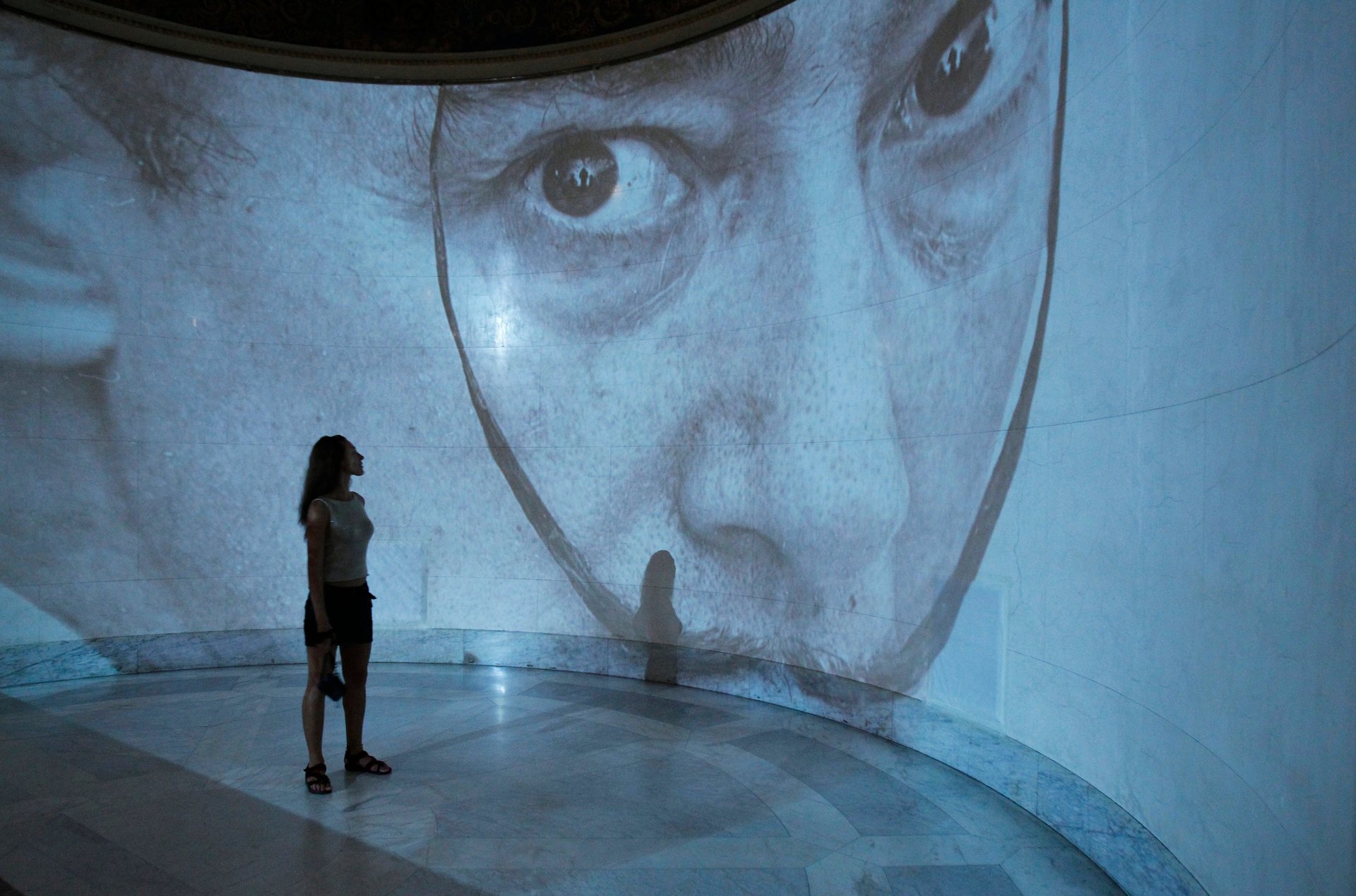A judge has ordered that Salvador Dali’s body be exhumed for a paternity test
Trouble has found him again.


Trouble has found him again.
When Surrealist artist Salvador Dali died of heart problems in 1989, at age 85, the New York Times obituary said of the master painter and prankster that “at his best Dali wrote out a declaration of independence for the human imagination in a way that is still valid.” It also noted that “to the day he died he was—as he would have wished to be—a subject of controversy.”
Now, 28 years since his passing, Dali’s physical remains are involved in a new flap, this one related to a paternity suit.
Maria Pilar Abel Martínez, a tarot card reader who was born in Girona in 1956, says that her mother, Antonia, had an affair with Dali in 1955, according to the Guardian. At the time, Antonia was a maid who worked for a family that spent time in Cadaqués, a town in Catalonia near one of Dali’s former homes. They became friends, but also developed a romantic relationship.
Abel claims that her late mother, Antonia, would often discuss her paternity as a fact. ”The only thing I’m missing is a moustache,” she once said, reports the BBC, quoting the Spanish newspaper El Mundo. In 2015, Abel brought the matter to a Spanish court, and today a judge in Madrid ruled that the artist’s body should be exhumed for a DNA test. The decision could be appealed, or Dali’s body could be exhumed as early as July.
“The DNA study of the painter’s corpse is necessary due to the lack of other biological or personal remains with which to perform the comparative study,” the court papers said.
In 1955, Dali had already been married to Elena Diaranoff, known as Gala, for 20 years. In conversation, he often referred to the marriage as “the ideal union,” according to the Times obituary. However, their marriage was also the subject of controversy. An expose published in 1998 in Vanity Fair, reproduced here, alleged the couple had an unconventional love life that involved other men and women, late into their lives.
Dalí left his estate to the Spanish state. If Abel’s wins her legal claim and is proven to be Dali’s daughter, she’d have the rights to use his name and would be entitled to part of the estate.